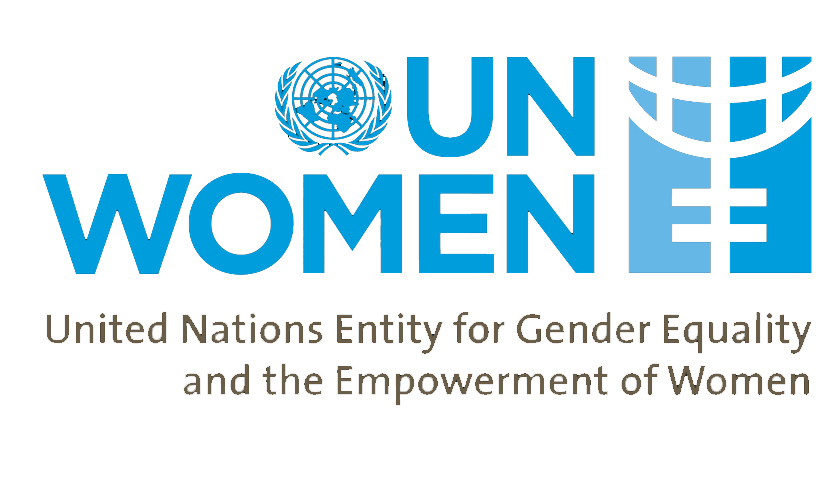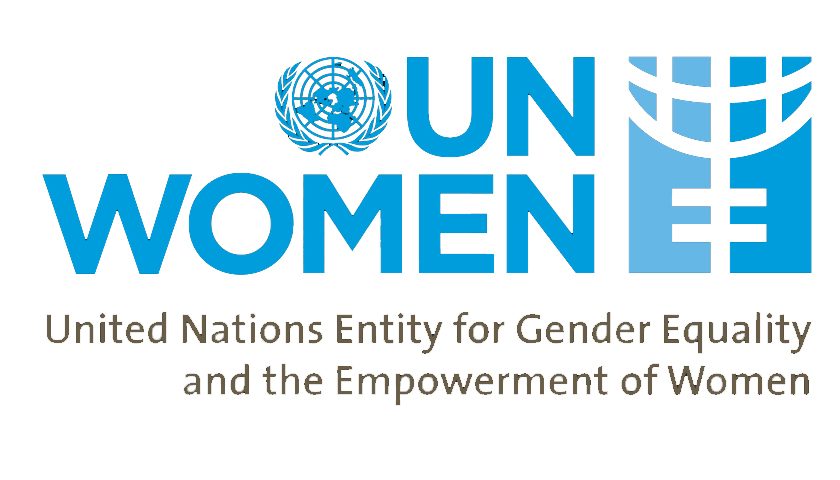UN Women is intensifying its preparations for the 2021 Generation Equality Forum amidst a back-drop that shows women’s rights and leadership are under threat, and even more exacerbated due to the COVID-19 pandemic. Current projections show that gender equality in the highest positions of power will not be reached for another 130 years. This year’s International Women’s Day rings the alarm on rising threats to gender equality and highlights the need to build back better for a more gender-equal future.
The official UN commemoration, under the theme of “Women in leadership: Achieving an equal future in a COVID-19 world on the way to the Generation Equality Forum”, will feature global leaders, including the United Nations Secretary-General António Guterres, the Prime Minister of Iceland Katrín Jakobsdóttir, activist and actor Eva Longoria, and Somaya Faruqi, member of the Afghan Girls Robotics Team. In addition to offering reflections on the theme of the day, they will call for redoubling of efforts to increase women’s participation in all aspects of leadership and public life, and on finding new solutions that leave no woman or girl behind.
“We must remember 2021 as a global inflection point on gender equality – a year when women’s rights and leadership accelerated irreversibly. The Generation Equality Forum will be a catalyst for lasting change. A more equal world will be a different world. More inclusive decisions will be made, different voices heard, and different solutions created,” said UN Women Executive Director Phumzile Mlambo-Ngcuka.
António Guterres, the UN Secretary-General, said: “Gender equality is essentially a question of power. A male-dominated world and a male-dominated culture will yield male-dominated results. But the opportunity of man-made problems – and I choose these words deliberately – is that they have human-led solutions. These solutions can only be found through shared leadership and decision-making; and through the full realization of women’s rights, including the right to equal participation. Realizing women’s rights will benefit all of us.”
This International Women’s Day comes at a moment where evidence is growing that the pandemic is having a disproportionate and severe impact on women’s rights – from their role as front-line healthcare workers often without adequate protection, to the loss of jobs as the informal economy shrinks, and the alarming spike in domestic violence and unpaid care burden. Now striking new data on women’s leadership further emphasizes the imperative for action:
- Only three countries globally have 50 per cent or more women in parliament, and the same amount have no women in parliament at all.
- Women under 30 years- make up less than one per cent of parliamentarians globally.
- Women parliamentarians reported in one survey that they experienced nearly twice as much exposure to torture, ill treatment and acts of violence compared to men.
- Despite the plaudits given to many women leaders for their COVID-19 response, only 3.5 per cent of the COVID-19 task forces examined in 87 countries had gender parity.
Research shows that when women are in power, overlooked policy issues, such as ending violence against women, childcare services and healthcare get more attention; there is often less government corruption and political parties are more likely to work together. For example, in Liberia during her first term as President, Ellen Johnson Sirleaf introduced a specialized court to prosecute violence against women. Norway’s former Prime Minister Gro Harlem Brundtland, and current German Chancellor Angela Merkel, both strengthened family leave provisions and increased funding for early childhood education.
Achieving equality in leadership and decision-making is possible. The Generation Equality Forum’s Action Coalition on Feminist Movements and Leadership has developed plans to achieve gender parity in executive and legislative positions in 50 countries by 2026.
UN Women has also put forth a series of concrete recommendations from improving legal frameworks, especially through adopting and enforcing gender quotas, addressing social norms and violence against women in public life, and increasing funding to support women candidates.
Generation Equality Forum taking commitments to the next level
The 2021 Generation Equality Forum, organized by UN Women and co-hosted by the Governments of France and Mexico, in conjunction with youth and civil society, will be a once-in-a-decade opportunity to change our societies and cement women’s leadership as we recover from COVID-19. It will kick off in Mexico City from 29 to 31 March and culminate in Paris, France, in June.
Launching on International Women’s Day, the actions of the Action Coalitions, which will be a main deliverable of the upcoming Generation Equality Forum, will define the most catalytic areas for investment in advancing gender equality. The Coalitions will seek a wide range of commitments from diverse organizations – governments, nonprofits, corporations and youth leaders – on six themes ranging from Feminist Movements and Leadership to Gender-based Violence, to accomplish lasting gender equality.
Actor and activist Eva Longoria will launch at the event the new UN Women campaign for the Generation Equality Forum, #ActForEqual, to create a groundswell of awareness and action in the run-up to the Generation Equality Forum.
Other participants at the virtual International Women’s Day event will include: Élisabeth Moreno, Minister for Gender Equality, Diversity and Equal Opportunities of France; Marcelo Ebrard, Minister of Foreign Affairs of Mexico, Elizabeth Gómez Alcorta, Minister of Women, Gender and Diversity of Argentina, Filippo Grandi, United Nations High Commissioner for Refugees, Xiye Bastida, Climate Justice Activist; Eddie Ndopu, SDG and Disability Rights advocate; and Aya Chebbi, Pan-African Activist and Chair of Africa Young Women Manifesto Group.
International Women’s Day around the world
In addition to the official UN commemoration, hundreds of events and activations around the world will mark International Women’s Day, including a roundtable by the African Women Leaders Network discussing women’s leadership in Zimbabwe, an audiovisual exhibition with the stories of women survivors of violence in Albania, an online photo gallery honouring “Women in Leadership” by partner agency UNOPS in Thailand, and a panel discussion in Jamaica as part of the joint EU-UN Spotlight Initiative on women in leadership addressing gender-based violence in the COVID-19 environment.
For the seventh year in a row, over 90 stock exchanges around the world will raise awareness of the essential role that the private sector can play in strengthening women’s leadership, by hosting a bell-ringing ceremony.
In response to the alarming shadow pandemic of violence against women during the COVID-19 crisis and ahead of International Women’s Day, the UNiTE to End Violence against Women Campaign released its “Orange Day” UNiTE Action Circular booklet on 25 February focusing on one of its four critical work areas this year: Funding for organizations. The other three areas are: respond to survivors’ needs, prevent violence and collect data and Action Circulars on those topics will be released through the year.

